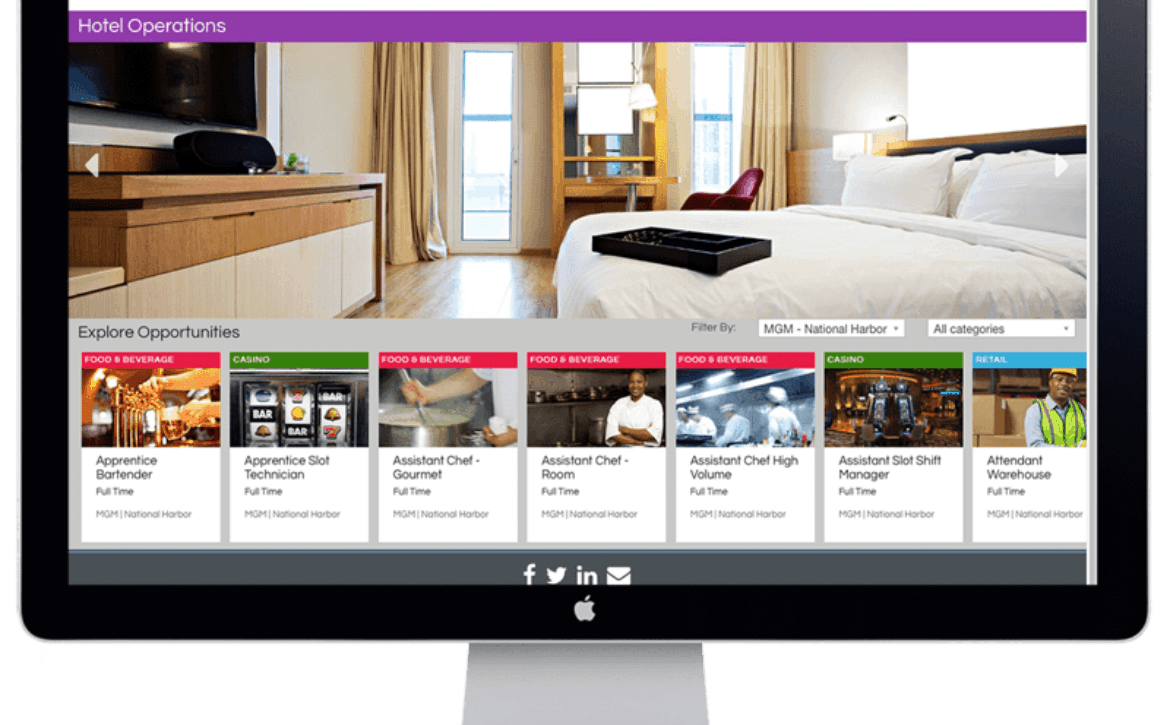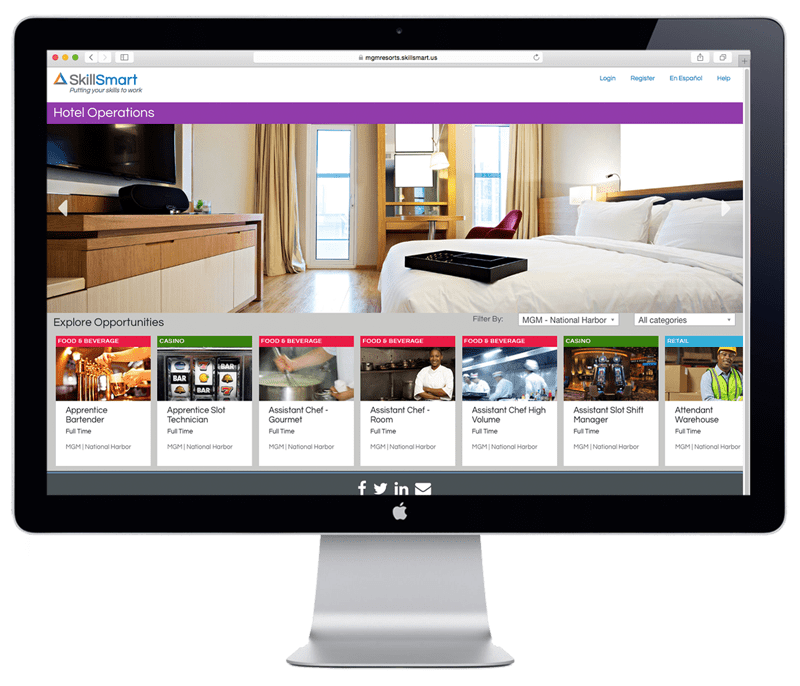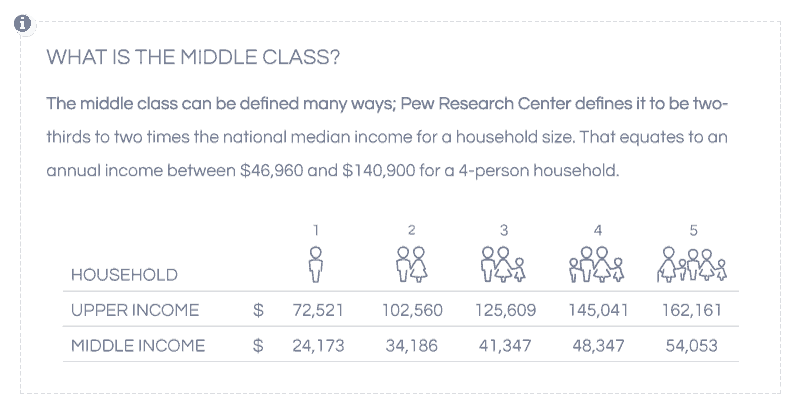
Veterans Day was established in 1919 by President Woodrow Wilson to lift up those individuals who have donned the uniform and made countless sacrifices to protect and serve our country – and to ensure they receive the recognition, love and respect they so rightly deserve.
On this day, and every day, we can think of no better way to honor our service members than to provide them with a straightforward transition to civilian life with effective, comprehensive tools to make this process smooth and dignified.
Unfortunately, this isn’t always the case.
Over the last 15 years, service members have transitioned to civilian status at an exponential rate. More than 2.4 million Veterans have re-entered civilian life since 2000, and an additional 1 million are expected in the next 5 years. Astonishingly, over 500,000 Veterans are unemployed and 31% of employed Veterans report being underemployed or in low-wage jobs.
Unfortunately, there are countless anecdotes of Veterans who managed the equivalent of small cities during their service, yet when they transitioned to civilian life were only able to find employment in a low-wage, low-skilled job. This highlights a real and growing problem: the underutilization of our service members’ skillsets and the direct – and significant – economic loss it causes for the Veteran community and broader society.
While this reality isn’t due to any malicious intent, it has detrimental consequences nonetheless. Military duties don’t always translate directly, or clearly, into civilian life. The military has purposefully codified each branch, duty, and rank of service to ensure order, hierarchy and efficiency are maintained consistently throughout all divisions of our armed forces. Consequentially, our service members are well-versed in “military speak” but struggle to articulate the skills acquired during their service in a way that conveys to civilian terms.
Similarly, the vast majority of HR specialists are unfamiliar with military functions, practice and language. They struggle to identify how prior military service meets their business needs. It’s easy to understand why an HR specialist without military training may have difficulty knowing what duties an infantryman, for example, would have performed or how those experiences might help their business.
In response to this language challenge there have been significant efforts over the last few years to adopt something called a Military Occupational Specialty (MOS) Translator, a tool designed to translate military skills and experience into civilian terms and covert military positions to civilian occupations. Service members enter their military branches and occupational codes into the Translator, which returns civilian job opportunities that match their military codes.
In theory, this is precisely what we want and what’s needed. Unfortunately, it’s quite rare for an MOS Translator to accurately capture a service member’s skill set, because they are generally built upon an aggregated data model like O*NET, which matches a military position to a particular occupational code. This way of matching a military position to a civilian job can fundamentally ignore the individual skills developed by an individual service member while serving our country – it looks to words and codes instead of people and skills.
Just as no two civilian jobs are performed exactly the same, no two military jobs are exactly the same despite their uniform codification. In the same way that a teacher in a rural school district might develop different skills than one in an urban setting, even though they’re both teachers, service members with the same position title but different assignments will develop different skills.
To prove this point, the SkillSmart team used a translator to search for a job in Ft. Meade, Maryland where a US Army Intelligence Analyst, better known as a 35M, might find a job. The search returned several entry-level security positions and a few code-based cyber positions, but unfortunately no positions were returned that were directly linked to this MOS. However, a quick search of the National Security Agency’s online career site returned open positions for Intelligence Analyst Development Program (IADP) – Entry Level at Ft Meade – which would be much more aligned with the skills developed by the analyst while in the Army.
This translator process often either underassumes the breadth of a service member’s skills or sometimes overassumes their skill development. Either instance can be a disservice to the service member leaving them frustrated and saying “that’s not what I did.”
This begs the question: What do our service members do and which skills do they develop? We think there are no better people to answer that question than the service members themselves.
Instead of trying to match a military code to a job title, it is more important to better understand what skills our individual service members have developed and identify where those skills may qualify them for existing civilian opportunities. To accomplish this, the SkillSmart platform starts with the skills that an employer is looking to hire. We work diligently with employers to break down their positions into the individual skills that comprise each position.
Once the process of working with employers to create a clearly defined list of “desired skills” is complete, these skills are presented to Veterans and prompt them to identify where they may have acquired and demonstrated a skill during their service. This process empowers service members to identify a specific skill and display how they’ve used it. For example, they may recall being responsible for inventory during a 12 month assignment during their time as an E-5 when seeing “inventory management” as a desired skill in a position of interest.
This process allows the HR specialist to identify the positions and skills needed, and allows the service member to provide valuable qualification information about their service.
In addition, this skills-based approach helps identify any skill gaps that service members might have for the opportunity they are seeking. Resources exist for transitioning service members to develop and advance their skills and training, whether during the 180 days allotted under the Transition Assistance Program (TAP), the GI bill or otherwise. At SkillSmart, we arm them with information about the skills employers want and the skills they need to acquire or improve, so they can be most efficient with these resources and reach their potential.
It is both a moral and economic imperative to ensure that the individuals who have served our nation are well served with the right tools to accelerate their transition to civilian life.
We need Veterans to be contributing members of the economic workforce. While national unemployment rates have declined, more than half (53%) of our Veterans enter a period of unemployment upon transitioning to civilian life with an average of almost 6 months without employment. Our economic outlook is brightest when this population is able to meaningful contribute.
Further, the American military is one of the most elite training institutions in the world spending billions of dollars on training its active service members annually. In the same way we think of our post-secondary education system as providing training to benefit the individual and society over a longer period of time, so too must we view the training provided to our elite military. Accordingly, it’s double the economic loss when a well-trained service member is unable to fully put their skills to work.
Lastly, there is a serious and immediate workforce demand that our service members could fill. There are currently six million open IT positions and a growing focus on cybersecurity, which is, arguably, the greatest economic threat to our country.
Veterans are uniquely situated to transfer their skills into these and other open civilian positions or engage in additional skills development to pursue these positions. They are an untapped resource that once tapped will have great benefit to them individually, our economy and our national security.
To all the Veterans, we thank you for your tremendous service. It is now our duty to honor your efforts with more than words, we must give you the tools to be as successful as civilians as you were as soldiers.
Symantec Cyber Career Connection (SC3) and its Commitment to Veteran Hiring
Cybersecurity giant Symantec has added Per Scholas to its Cyber Career Connection (SC3) effort. The Symantec Cyber Career Connection (SC3) is a collaborative effort to address the global workforce gap in cybersecurity that was launched in 2014 at the Clinton Global Initiative America summer meeting. The program provides underserved young adults and military veterans with targeted education, training and certifications that position them to fill in-demand cybersecurity jobs and enter long-term careers.
Through the SC3 cybersecurity program, Per Scholas will provide military veterans its tuition-free training in IT support and cybersecurity. The offering is four months and leads participants to complete the CompTIA A+, Network+, and Security+ certifications along with entry-level employment assistance into cybersecurity with Per Scholas corporate partners. Launching in 2016, this course offering will be available in the National Capital Region.
The National Capital Region (NCR) had more than 23,000 job postings for cybersecurity in 2013, and 2015 projections show this number grew to 33,000, the most nationally. Per Scholas will expedite the transition of our military veterans into this in-demand industry and help address these job needs.
Learn More by Alison Rice, AgWeb.com
by Alison Rice, AgWeb.com




















